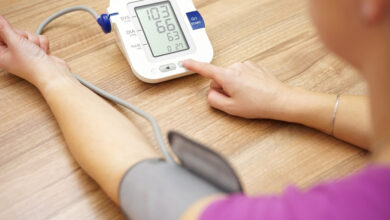Health information on the Web and medical apps on your Smartphones – how reliable are they?
Story: Maritza Manresa
There are many different sites available on the Internet offering free medical advice. All you have to do is type in your symptoms and, by process of elimination, you can self-diagnose. Thus feeling relief that you do not have a life threatening disorder or panicking because of the possibilities. The same holds true for medical apps that can be downloaded on any smart phone. There are apps that will provide you with medical advice based on what you have entered and then there are those medical apps that simply help you track your pregnancy – no harm done there. But how reliable is that? During a trust-building exercise, a person committing a trust fall relies on other persons behind her to catch her. Similarly, how much can you rely on a trust call made on your smartphone to access the Web or an app to match your symptoms and ailments correctly? That depends on the website and the app.
Websites Offering Medical Advice
The number of websites offering medical advice is never-ending. You can easily spend hours searching the Web for just the right website that will offer the medical advice you are looking for, and even after you find the site, you feel the most comfortable trusting your symptoms with, you will then spend another great deal of time checking the symptoms that you have and those that you do not have to finally come up with a possible diagnosis. These websites can decrease the span of what it could be by process of elimination. For instance, WebMD is one of the sites most often visited online when trying to figure out what the symptoms being experienced could be, by using its WebMD’s Symptom Checker. Like many other similar sites, it takes the individual though a series of steps that narrows down the location of the symptoms and the severity of the symptoms. The problem with this is that at the end of your search the diagnosis can vary from the simplest to the most alarming. For instance, running a search for headache – once you have narrowed down where the pain is and the severity, it still tells you that it can be anything from an allergic reaction to a brain aneurysm. Quite the disparity, right?
So, it is then up to you to make the right call, or smart decision, and based on how you are feeling, to seek professional help. Although these sites contain a disclaimer at the very bottom in very small letters, stating that the site is not intended to provide medical advice, that it is intended for informational purposes only and that it is not intended as a substitute for professional medical advice, diagnosis or treatment, a great number of people still rely on these sites as the ultimate source of knowledge for medical issues.
There are three websites, however, recommended by Myra Downing-Sherman, DNP, ARNP, of Family Care Specialists in Ocala, as good, reliable sources for health-related information. One of them is MedlinePlus (www.nlm.nih.gov/medlineplus) a consumer health information site developed by the U.S. National Library of Medicine, National Institutes of Health. The second site is by the U.S. Department of Health and Human Services’ Agency for Healthcare Research and Quality (www.ahrq.gov) and was developed to help people take an active role in their healthcare. It is an interactive site which allows individuals to ask pertinent questions, ultimately helping them understand their condition and even create a list which patients can take to their health care providers. Lastly, there is NIH Senior Health (www.nihseniorhealth.gov), which is another site by the National Institutes of Health, specifically designed to address aging related health issues. Any of these three sites, used wisely, can be beneficial and provide the individual with enough accurate information they take to their healthcare provider for further assistance in addressing health issues. Again, consulting your healthcare provider for any health concerns is always the best bet.
Medical Apps On Smart Phones
The number of health related apps on smartphones is just as astounding as the number of websites available on the subject. Both Android and iPhones have their own apps available to their users, some free and some not. However, the real concern with these apps is reliability. Although people often question the reliability of the information available through these apps, they continue to use them. In fact, there have been documented cases of scammers who created medical apps for smartphones that were totally bogus. For example, in 2011 the Federal Trade Commission (FTC) went after two app developers who had created smartphone apps that claimed to treat acne. Supposedly, the app’s emissions of flashing lights of specific colors to the exposed skin would help eliminate acne. Although one of the two developers claimed to have based the app on research results that had been published in a dermatology medical journal. The FTC shut them down because there was really no research to support the claim. There was hope, however, because in 2011, the Food and Drug Administration (FDA) stepped in and began taking steps toward the regulation of these apps releasing a draft of guidelines that will require mobile app developers, who make medical claims in their apps, to apply for FDA approval for the apps. Although this remains a work in progress, hopefully soon the general public will be able to trust more in the reliability of these apps.
However, some health apps do not really require a lot of research and their reliability is not as critical as others. For instance, apps that track how much a person has walked or helps the expectant mother keep track of the pregnancy would not have catastrophic outcomes should the information be inaccurate. On the other hand, for other apps, such as the ones that help you identify medications or identify a problem based on symptoms, it is critical that they are accurate, credible and reliable. Doing extensive research on the apps you are interested in is critical so that you are sure the information you are receiving will not put your health in jeopardy.
When your health is on the line, always use common sense. Always research your sources well before you place any trust in them. “Make sure you know where they are getting the data to back up the information they are providing,” said Downing-Sherman. Most importantly, regardless of what the website or the app’s results were, always check with your health care provider to make sure you are properly taking care of whatever health issue you may have.






